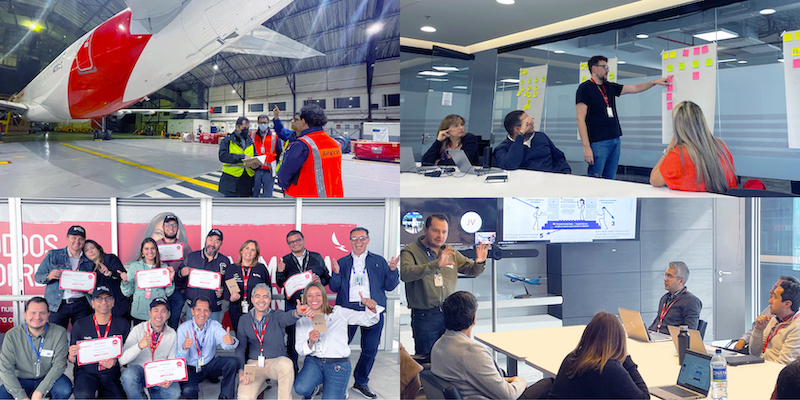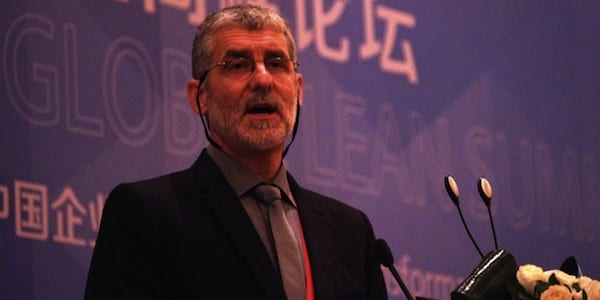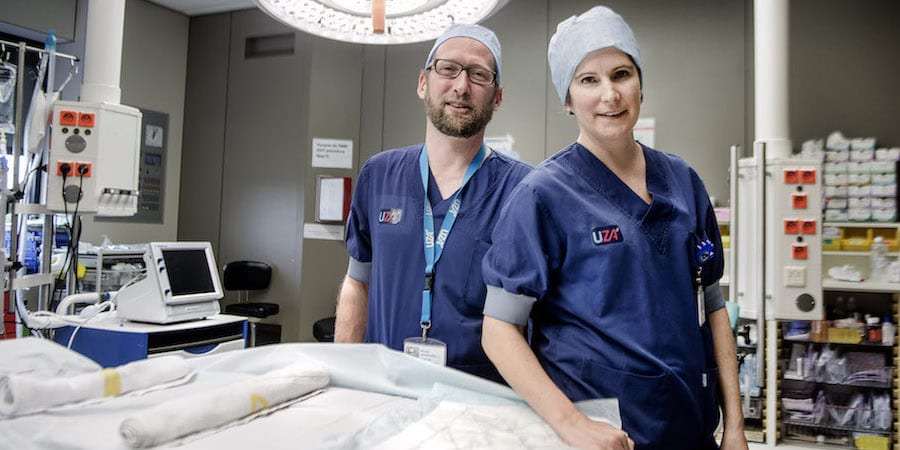
Lean gives us wings
INTERVIEW – The lean journey of the Engineering and Maintenance Department of Colombian airline Avianca proves how important it is for leadership to spearhead change.
Interviewees: Albert Pérez and María Fernanda Sarmiento
Lean Institute Colombia: How did your lean journey begin?
Albert Pérez: Lean concepts have been applied in the aviation industry before, with some degree of success. Several airlines initiated lean transformations with the help of consulting companies and achieved reasonable results. I say “reasonable” and not “good”, because more often than not these initiatives focused more on tools than on cultural change. You’d see kaizen workshops, value stream mapping exercises, and so on, but I didn’t see real change in the culture. Or at least it didn’t happen as quickly as I would have thought at that time. When I joined Avianca, an organization of 12,000 people with more 100 years of experience in the aviation industry, there was a lot to be done and I quickly realized that no matter what we did, it would have to start with culture.
When we started talking about lean, the team’s first reaction was: “We already tried it two or three times, and it didn’t work.” In their experience, the changes implemented had worked for a while and then disappeared.
María Fernanda Sarmiento: Our idea of lean was informed by the traditional consulting approach, where coaches came to redesign processes themselves, with no input from the value creators. Therefore, until consultants were there, people followed the new process, but as soon as they left, they reverted to the old way of doing things.
AP: Our latest attempt was in partnership with Lean Institute Colombia. From the very beginning, we realized their approach was different. For instance, there was a strong focus on the management system, on leadership, and on culture.
LIC: What improvement opportunities did you identify?
AP: The first realization we made was that we were solving problems in the wrong level of leadership. Some of them, for example, were escalated and resolved by the VP, when they should have been deal with by the operational team. Of course, our aim was to fulfil our safety and quality promise in the delivery of airplanes.
We were heavily engaged in the nitty-gritty of the operation. I don’t think there is necessarily something wrong with that, but it has to be done properly. We had a daily virtual meeting attended by over 100 people from all areas who explained what had happened that day. The tendency was to jump to solutions without fully understanding the root cause of problems. Leaders would provide the solutions and people would implement them without sharing their point of view or challenging them. If your boss gives you the solution, well… that is it, right? It’s actually a bad and dangerous dynamic.
We then understood we had to change the way we managed our daily work. For that, and to start seeing results, we had to change our way of thinking, our behavior, and our way of managing the business.
MFS: The levels of leadership at which problems had to be solved were totally integrated. It wasn’t exactly delegating to the higher level; it was more like waiting for the person higher in the company’s hierarchy to solve the problem. In the company, there was no expectation that people should be empowered and given responsibility to solve problems.
As we senior leaders in the Engineering and Maintenance department started to work to empower people to solve the problems that pertained to their level and their work, planets sort of aligned. At that same time, Avianca decided to turn the company culture on its head and increased its focus on the critical values of empowerment and accountability. That created a synergy between the culture push the company initiated and what our department was doing with the help of Lean Institute Colombia. This is what ultimately allowed us to introduce the changes we were after.
LIC: We know how important it is for the leader to be an early adopter of lean practices, and we saw that with you, Albert. You were brave enough to change your own way of managing. What was that experience like?
AP: When I joined Avianca, I went straight into Operations to truly get to know the work. Let me reiterate, I think that’s a good thing and that we need to continue doing it more and more to truly understand the problems our people face. But I made a mistake at first: instead of empowering the organization to solve problems, I wanted to fix it all by myself.
I guess that’s because of the sense of urgency I felt for achieving results and trying to change our culture. In the old meeting, there were attempts to solve the problems, but we got to “solutions” very quickly and I saw that the system wasn’t working. Our approach had to be different. Previously, I was providing solutions left and right, and a lot of problems ended up on my desk. I then realized it would be easier if everyone solved the problems they were supposed to solve. It would make my life easier and give me more time to be at the gemba supporting people. Besides, it would be good for the organization. So, I freed myself from the obligation of solving it all, letting my team, who has the preparation and experience necessary to make the right decisions, take the lead.
LIC: What have you achieved in the past few months?
AP: First of all, people are happier to work in our area. When a person feels respected and that their technical, professional, and personal background are taken into account and used to improve the organization at all levels, they feel more motivated to work at Avianca and are incentivized to stay. We have a lot of ground to cover still, but we have already gotten to a place where people want to come to work, find meaning in their jobs, and feel like they are participating and that the business is improving.
Then, there are the results. Sure, there are ups and downs, but more and more we are working towards the indicators we have set. The ups and downs are a result of the context we are influenced by and of the internal performance of the business, but we have already achieved improvements. In the aviation industry, we put a lot of emphasis on keeping planes on the ground for the shortest possible time and on making sure they are always airworthy and safe to operate. Our airplanes generate value for our customers when they are flying. Our focus is currently on improving our metrics of aircraft availability and on-time delivery. When we get results, people feel engaged and are more willing to keep the improvement work going.
LIC: What’s next for Avianca’s Engineering and Maintenance department and its leadership?
AP: We are a highly regulated industry. This is an advantage because everything is clearly documented. With safety as our core value, we work on our airplanes using manuals and standards, always abiding by the regulation. This cannot be changed and is in no way under discussion, but it’s interesting to see how, in airlines, it is often used as an excuse to not engage in Lean Thinking. People say that lean in airlines can’t be done because the regulations already cover it all. That’s simply untrue, because there is an infinite number of combinations in the way you deal with regulation and manual. What we are currently looking for is the combination that makes us the most agile and efficient in our use of resources.
For us leaders, the focus has to be on continuing our evolution and on changing more rapidly. To me, that’s the single most important thing for us to do. We have to learn more about lean principles and what it means to establish a lean management system. I have a personal responsibility to change faster as a leader – only when we change can the organization change – and develop the rest of the organization and accompany them at every step. At the same time, we have to keep training on the use of lean tools, receiving and providing mentoring, opening A3s to solve our problems, which are new every day.
THE INTERVIEWEES


Read more


NEWS - Back from his annual trip to Shanghai, Anton Grütter, CEO of the Lean Institute Africa, shares a few interesting insights into the Chinese culture.


FEATURE – In this roundup, we discuss the obeya room and use some of the best articles on the topic to explain why it’s such a powerful tool to drive improvement in your organization.


CASE STUDY – How an improvement program of the British national healthcare system inspired a Belgian hospital to launch an organization-wide lean transformation with the active support of the HR and nursing departments.



INTERVIEW – At the recent UK Lean Summit, we met the Head of Student Services of an English high school. We asked her about the interesting work the school is doing to improve the delivery of education to students with special needs using lean thinking.
Read more


NOTES FROM THE GEMBA – The author visits the Parisian airport of Orly to learn about a pilot project (pun intended) that aims to tackle the late departure of flights using lean thinking.


WOMACK'S YOKOTEN – As a new age in aerospace dawns, with a need to move from huge and bespoke designs to affordable and high-volume production, lean thinking has a key role to play. But will the industry listen?


FEATURE – In a bid to find inspiration and new ideas to achieve excellent outcomes in patient safety, a group from a Boston hospital flew to Orlando to visit JetBlue Airways.


INTERVIEW - Having to adapt to changing customer needs, KLM Catering Services decided to turn to lean thinking, reducing its changeover times and recycling more.

